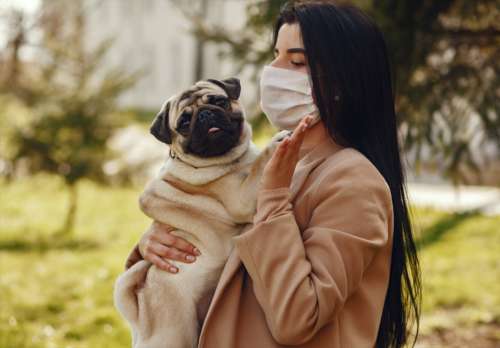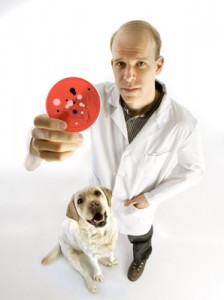
Why do some pets get infected with the new coronavirus and others do not?
That’s one of the key questions researchers with the University of Guelph’s Ontario Veterinary College hope to answer in a new research study.
The study is one of the first of its kind to examine what risk COVID-19 in humans poses to pets and why some animals become infected while others do not.
Profs. Scott Weese and Dorothee Bienzle from the Department of Pathobiology are currently seeking volunteer participants with cats, dogs or ferrets in which at least one household member has symptoms consistent with COVID-19 or has had a positive test result.
“We’re trying to understand how often human-to-animal spread happens. We already know it can happen; we’ve seen it in various instances. Now we’re trying to find how common it is,” Weese said.
Weese has emphasized that COVID-19 is predominantly a human disease. Human-to-pet transmission can occur, but appears to be rare. This study will investigate what factors contribute to pets becoming infected and which types of households are at highest risk of having human COVID-19 infections spread to pets.

Since the new coronavirus emerged, there have been sporadic reports of animals testing positive for the coronavirus that causes COVID-19 — including at least two dogs in Hong Kong and another in the U.S., two tigers and a lion in or near New York City, as well as cats and minks in Europe.
“We know that cats can get sick with this virus, but we don’t know how commonly that occurs,” said Weese. “Dogs seem less likely to get sick but we don’t know if that’s because they get infected less often or because they don’t get sick when they are infected. That’s why we’re doing this study, so we can understand this better.”
The study will also include ferrets because the animals are known to be highly susceptible to respiratory viruses. In fact, they may be the pet species at highest risk of COVID-19.
Close to a dozen pets have been sampled so far, Weese said, and researchers aim to recruit several dozen more.

Initially, each study participant is asked a few questions to determine if they meet the criteria. If they do, an OVC researcher visits the household to collect nasal, throat and rectal swab samples from the pets, as well as a swab of the fur where the pets are most likely to be petted.
Researchers will test the swabs for the virus and sequence any virus samples to see how they compare with the original coronavirus strains circulating among humans.
The sequencing may reveal whether the virus has undergone changes in the pets that make it more likely to infect animals, said Weese.
“There are still many things we want to know about the virus and the interaction between humans and pets. But we need to have an idea of how often human-to-pet transmission occurs first. This study will lay the groundwork for that future research.”
Pet owners in the Guelph area who may qualify to participate in the study can contact the researchers by email, below.
Contact:
Prof. J. Scott Weese
jsweese@uoguelph.ca
Prof. Dorothee Bienzle
dbienzle@uoguelph.ca